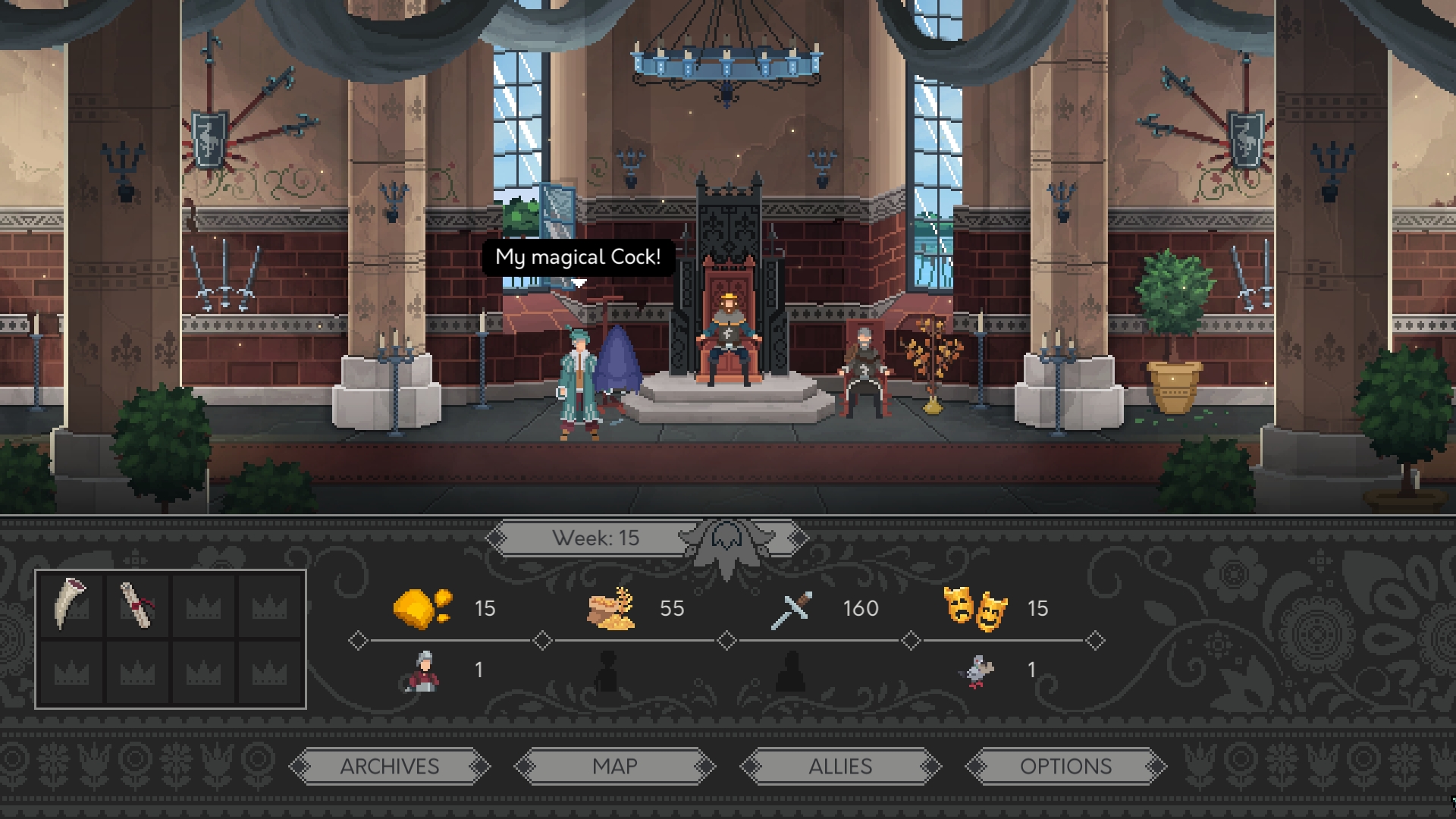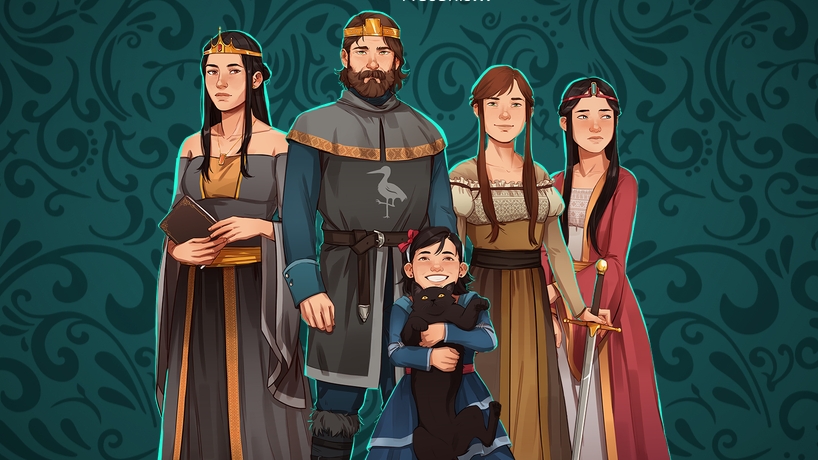What is it? The perfect game for anybody who likes to boss people around and pretend they’re rich.
Expect to pay $20/£16
Developer Brave At Night
Publisher No More Robots
Reviewed on GeForce GTX 1650, AMD Ryzen 5 3550H, 8 GB RAM
Multiplayer No
Link Official site
Yes, Your Grace is a choice-driven adventure game that casts you as a king deciding the fate of his subjects. The whole thing is presented with lovely retro graphics, backed up by Simlish-esque speech and a great soundtrack. The writing is (usually) very good too. It’s a shame, then, that the atmosphere is now and again shattered by unsubtle tutorials and hints from your advisor, and on one occasion, an awkward reference to Hypnospace Outlaw.
To begin with, it’s all pretty straightforward. Entertaining lords and smelly peasants alike in the throne room, I listen to their wants and needs, and decide whether I feel like improving their dull lives. I can’t say yes to everyone, of course. I only have a limited supply of gold, and the ominously generic, Soylent Green sounding “Supplies”. As time goes on, I need to build up my army and make allies. That’s where things get more interesting.
It’s impossible to bring every lord and king onside. Their desires and interests conflict, meaning I need to choose who to woo. To the game’s credit, I find myself caring enough about this kingdom to let my conscience guide me. When one lord promises to help if I permit him to sell the harmful drug ‘Dust’, and another to help if I work to stamp it out, I don’t hesitate to wage my own War On Drugs—despite all that useful gold I’ll miss out on.
But let’s rewind a little. I’m soon introduced to my wife and my three beautiful pixelated daughters, all of whom play a significant part in the story. The family dynamic is strong and believable enough to ensure that, right until the end, I find myself always doing what I believe is right for each of them. However, and not to spoil too much, but a key decision to decide my daughters’ fate is made for me. This proves to be the most important decision in the game which deals a significant blow to the idea that my actions have important consequences in this world.

Nonetheless, there are clear examples of my kingly duties having an impact on how events unfold, and I don’t want to spoil them for you either. The game warns me that supplicants won’t always be honest with me. While it’s often obvious when this is the case, or the consequences of being fooled are negligible, there are a few exceptions. I felt genuinely bad when some people I saved ran off with some of my supplies the very second they missed out on a meal. Ungrateful oiks!
The idea seems to be that, as you can’t please everybody, you have to decide who to help and then hope that you made the right choice. Most of the time though, it doesn’t work like that, because you ordinarily only speak to one person at a time in the throne room—and you have to make a decision before seeing the next person. There’s no indication of what each person might want before you speak to them, either. Once, I sent my general to investigate something for a villager, only to find that the next person in line also needed my general (the alternative was to provide more gold than I had). Had I been given the choice, I would have helped the second person.
There are major battles too, which you get plenty of notice for. Although you issue orders and make decisions during battles, your impact during the fight is minimal, and how well (or badly) you do is in effect decided before the big day. This, for me, is the most interesting element of the game. The first battle, I survived by the skin of my blocky teeth with just two soldiers remaining. I think this is partly because, during the weeks of preparation, I dedicated resources more to looking after my subjects than on elements to help me beat the enemy. Major characters are at risk during conflicts, which made me care about the outcome.

The story twists are an odd mix of “saw it coming a mile off” and “say whaaat?”. It’s the small touches that impress me more than the major story beats, though. Choosing to imprison rather than execute one enemy paid off in a way I could never have known much later. Speaking of small touches, the animation really does deserve special mention. The standout for me is the affection and warmth the game communicates when the king hugs his wife or one of his daughters. For character models with such low levels of detail, it’s incredible.
I don’t have the level of control over events that I’d like (or, to be honest, that I feel I’ve been promised). Still, the story is strong and memorable, and throughout I am made to feel a part of the kingdom of Davern—which ensures I try to be a good king, rather than being somebody disinterestedly clicking dialogue options in a game. It is this firing up of emotions that is the game’s crowning achievement.
